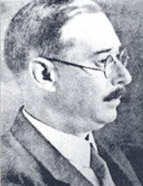

Knowing and philosophising, gnoseology and metaphysics, do not have similar modes, methods and outcomes: only Dilthey ’ s historical reason allows knowledge and speculation to be reworked in ontology: ‘Man, as a historical being, converts the natural environment given to him into a changing and multiple world through science and technology, the objectification of values and the unity of metaphysical vision or the symbolic configuration of poetry and myth’ (Idem, VIII, p.9).
In interrogating the history of science, JC was primarily interested in two panels of questions: starting with medieval culture, he discovered the origin of the ‘modern ideal of science’ and the century of genius (the 17 th ) against the Aristotelian ‘abstract universal’, as knowledge in the process of becoming , in the Galilean summit that Russell had analysed not as a mere episode in the conflict between fides and ratio , but between the spirit of induction and the spirit of deduction: as a result, he attended to the displacement of ‘human concerns from the domain of transcendence to that of immanence’ ( Idem , V, p. 308 ), the de-divinisation of the world in a secularising horizon of philosophical studies, annulling the arcane link between Philosophy and Theology, homo methaphisicus and homo credulus . On another panel, in the growing dominion over Nature and the ‘instrumental precision of the scientific method’, a new anthropology of homo sapiens in the rational affirmation of the Aufklärung [Enlightenment] , as a consequence, he composed pages for a biography of Reason. For these fields, he used a meticulous bibliographic and bibliologic grounding of the sources, evidenced in comparison with contemporary Portuguese culture: in the confrontation with coeval university knowledge and with what he called ‘institutions of culture’, he aimed to capture development through ‘successively more complex stages’ ( Idem , II, p.357). The aim was to reveal an idea of the world , ‘worldview or cosmovision (the word hardly matters)’, whose experience ( Erlebnis ) would provide the comprehensive (rather than explanatory) framework for spiritual activity, historiographically investigated.
This work is financed by national funds through FCT - Foundation for Science and Technology, I.P, in the scope of the projects UIDB/04311/2020 and UIDP/04311/2020.
